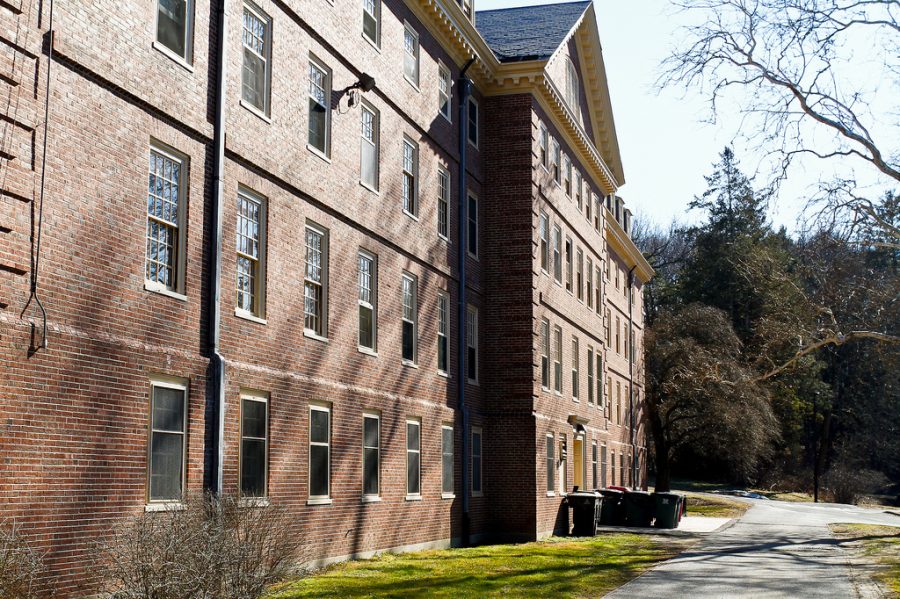Spring break – the much-needed respite amidst the egregious monotony of midterms. The time of the year revered indiscriminately by college-goers across the continent. While most students, upon the mention of spring break, summon carefree thoughts and conjure up Google-Images-worthy scenes of frolicking masses at Daytona Beach, I find spring break to be rather inconvenient. Before you hastily peg me as a vacation-hating masochist, know that I love my summer and winter breaks. I brave nearly 22 hours of air travel, go through endless security checks and consume grossly unpalatable airplane food just to get back home. When I finally arrive at the Indra Gandhi International Airport and breathe in that familiar, toxic, Delhi air, it all seems worthwhile. Spring break, however, hits me – and the entire international student body at the University of Massachusetts – with a gigantic “conditions apply” asterisk.
Unlike the longer winter and summer breaks, the spring and Thanksgiving breaks at UMass are only a week long. Residential Life promptly boots students out on the first morning of the break. Unlike the in-state students, I cannot simply lug my belongings in the trunk of a car and be on my way. Neither can I, like the out-of-state students, catch a bus or a train ride home. Home for me is 7,000 miles away. For me to spend $700 dollars on airplane tickets to go back to India for a week – out of which I would spend two days travelling, one day robbed by a time difference and one day recuperating from jet lag – just doesn’t make sense. The alternative Residential Life offers is temporary housing in Sylvan Residential Area at the “irresistible” price of $600 dollars. Of the 52 dorms at UMass, only five offer yearlong housing, two of which are in Sylvan and North Apartments (which aren’t exactly the most sought-after places to live on campus.) These housing options too add an additional $600 to your annual bill.
As an international student, I already pay $20,000 dollars more in annual tuition fees than an in-state student. This is not including the $200 dollars UMass charges me in the name of “International Student Services.” All this, one would think, should earn me the right to not get kicked out of my dorm for every seven-day break that presents itself. That, unfortunately, is not the case.
So, every spring and Thanksgiving break, while others eagerly pack their luggage and conveniently dump it into their cars, I fret over finding affordable, weeklong shelter. I’ve often been lucky in the past, as friends and relatives have been kind enough to host me. Not everyone, however, can say the same. I’m often asked, “why don’t you just vacation in Florida like most others do?” While that is an effective way to spend seven days off-campus, it does not come easy on the pocket. Simply put, vacationing – the hotels, the food, the transportation – is an expensive affair and like many international students, I’m not exactly sitting on a pot of gold, which is plainly exemplified by the fact that one George Washington-faced dollar bill counts for around 65 of Gandhi’s faces on Indian rupees. Any money I do save, I put toward more productive avenues, like my study abroad fund.
Moreover, this phenomenon of evacuating students during weeklong breaks seems to be unique to UMass. The University of Connecticut, University of Pittsburgh and Boston University all keep their residence halls open throughout spring and Thanksgiving breaks. Providence College closes its halls but makes an exception for international students and student athletes at no additional cost. UMass already offers break housing in five of its dorms; I don’t see why it can’t extend that facility to all its dorms without adding to the students’ financial burden. Besides, dining services are already functional during breaks (even though hours and locations are reduced,) so feeding the students won’t be an added obstacle.
UMass boasts a multi-national student body representing over 70 countries. By letting international students stay in their dorms over spring and Thanksgiving breaks, the University would give them one less thing to worry about.
Bhavya Pant is a Collegian columnist and can be reached at [email protected].















john aimo • Mar 19, 2018 at 2:49 am
The column is misleading, the student was not homeless. First this is an insult to homeless people who were actually homeless during that week and didn’t have 700 dollars yet alone most likely a dollar. To put up ‘homeless’ in the column is borderline shameful.
Second the author didn’t have to go back to India, she could have stayed at a hotel for less than 700 dollars during the week, she could have put an ad up for temporary weekly housing, she could have done an internship/job over spring break. She had lots of options but she chose go back to India and somehow is blaming Umass on her decision.
Third the University of Massachusetts is a state university in America funded partly by federal and state tax dollars. There are some international students here, but they make up a small portion of the student population. It would be insane and unfair if the school catered itself beyond all the benefits it already offers international students, to cater to them specifically. It’s a bit entitled too. The author could have attended an international university which exists all over the world and some in America or she can even transfer to one.